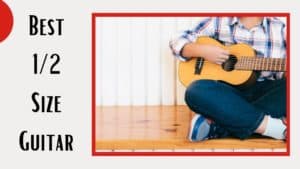Am I Too Old to Learn Piano?
A desire to learn piano is laudable, but some people don’t follow their dream later in life because they believe they are too old. But, studies have shown that playing an instrument can improve your memory and reduce stress at any age. If you play with other musicians, you can maintain communication skills, develop new friendships and broaden your social circle. If you’ve ever asked yourself “Am I too old to learn piano?” this is the article for you.
Table of Contents
Playing at a High Standard
It is true that the best pianists in the world tend to start playing at a very young age. Some people use this as an excuse not to start learning at an older age but this is the wrong way to look at it. After all, how many people become concert pianists anyway? Just because you’re not playing to a high standard, it’s no reason to avoid learning. In fact, many younger people start playing and then give it up later in life. It’s also true that younger people learn faster, but they lack nuance because they don’t have much living under their belts. So, if you played when younger and you want to pick it up again or you’re new to playing piano, it can be a very rewarding experience.
Developing the Correct Mindset
For many older students, the problem with learning piano will not stem from a physical barrier at all. Although you may have stiff fingers (fingering exercises help) it’s more likely that your main challenge is your mindset. Children learn at a faster rate because they crave repetition and everything they do is unique because they’ve not done it before. However, educators are well aware that kids over the age of 8 become more jaded and it’s harder to teach them new things quickly. Most adults have spent their entire lives specializing in a few things and they may even be an expert in one. Our skill sets become very specific and learning how to be a student again is hard. It’s important to understand that it’s more than OK to be really bad at something again. In fact, this can be a refreshing experience, if you can shed your jaded self and harness the power of feeling 5 again! Enjoy the repetition. It will lead you to play piano to a good standard and have a lot of fun at the same time.
10 Steps to Success
Let’s take a look at ten steps to help you learn piano at a more advanced age:
1.Find a Good Teacher
Some digital pianos and home keyboards have built-in tuition and song modes to help you get started. You can even find free online tutorials to help you learn piano yourself. But, despite these learning aids, it’s still a good idea to find a good teacher. When you learn anything yourself, it’s easy to develop errors and you may not hold yourself accountable to meet your goals. A good piano teacher can help you to develop good habits and offer encouraging support when you need it.
2.Learning the Basics
When you learn piano, it may seem repetitive at first because you need to understand the basics. If you don’t know how to read music or some fundamentals you will need to learn posture, scales, rhythm, notes, and other skills. If you adopt bad habits early, it can slow your progress when you try to advance later.
3.Prioritizing Practice
It’s essential to set aside some time to practice every day and commit yourself to this time of the day. Even shorter sessions of 20-30 minutes are more productive than 1-2 hours once or twice per week. Develop practicing into a habit and vary the songs your play to make this time a positive and enjoyable experience.
4.Set Realistic Goals
If you have clear goals about what you want to achieve as a pianist, it will be easier to learn efficiently. Perhaps you just want to play with a relative? Or you’ve always wanted to play your favorite song? Whatever the goal, make sure it’s clear and work towards it each day to stay motivated and focused.
5.Play Music You Like
This may seem obvious, but you may be surprised to learn that many new piano students think they have to play classical music only. If you like another genre, play that instead if it will motivate you to play and practice regularly. As an example: many pop songs have a simple melody that can be easier to learn quickly. When you can play a song, it’s a very rewarding experience and you start to wonder about other tunes you could learn.
6.Take Your Time
When you learn any new instrument, it takes time and you must have patience. A piano is a complex instrument, you need to start with simpler songs and graduate to harder songs as your skills improve. If you start with advanced pieces, you can become demotivated and demoralized quickly.
7.Make Your Mistakes
As we mentioned earlier, you’re going to make a lot of mistakes and that is a good thing. This is how we learn, it’s a key part of the learning experience and every piano teacher needs to see where you are going wrong to help you improve. Don’t feel embarrassed, every pianist has gone through this exact same process, they handled it and so can you.
8.Have Fun
If you’re having fun, it will be easier to learn the piano and start playing your favorite songs. Adopting an enthusiastic approach will make up for a lack of natural talent when you’re learning to play at almost any level. After all, it’s unlikely that you will be playing at Carnegie Hall any time soon and that’s fine if you’re achieving your goals.
9.Celebrate Your Victories
When you make any improvement, it’s important to take a moment to celebrate your victory. If you can finally master that song that you wanted to play, you need to acknowledge the effort that you put into the process. You may never be a concert pianist but you will certainly have better skills and knowledge as you progress.
10.Get Started
Many of us are masters at procrastination, but there is no point in hesitating for another day when you can get started now.
In Conclusion
It doesn't matter what age you are, you can always start learning piano and broaden your musical horizons. Playing the piano is a great way to maintain and develop new skills and it can be incredibly relaxing.

